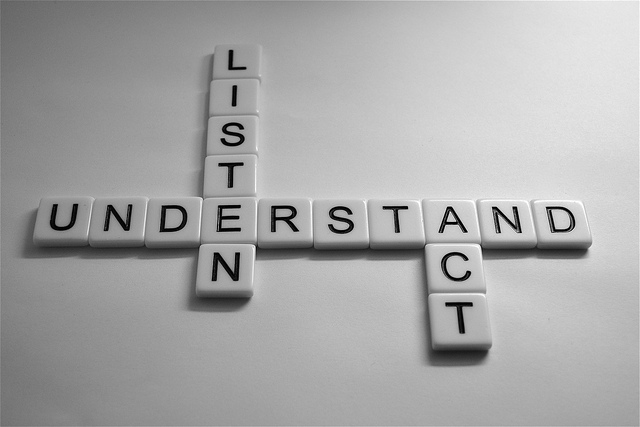

Much of communication relies on the nonverbal.

Such behavior can include facial expressions, posture, hand gestures, eye contact or movement, and touch. Pay attention to body language.īody language refers to the conscious and unconscious gestures and movements that express or convey information. That way, the listener and speaker build an authentic connection. No daydreaming, no interrupting, but simply comprehending the content and purpose of their words and body language. Incorporating mindfulness into active listening means that the speaker has your full attention.īeing mindful generally means being respectful and aware of the present moment. Focus on the intent and purpose of the conversation.Īpproaching listening from a holistic perspective begins with an intent to be conscious and receptive to the other person-including the intent and purpose of the conversation-in order to truly understand and empathize with them. The following techniques are foundational for effective communication-in conversations, lectures, or interviews, with anyone, anywhere. They are derived from the notion that active listening is a practice that can always be improved. These techniques can be used all at once or adopted individually in different situations. Further, research suggests that good interpersonal skills are a strong predictor of workplace success overall, due to the link between team effectiveness, empathy, and inclusivity. Among these skills are communication, negotiation, interpersonal skills, leadership, management, teaching, and training. Active listening can even help you manage your emotions, retain data and information better, and resolve conflict.ĭemand for social and emotional skills, including active listening, is projected to grow by more than 20 percent across all industries between 20, according to McKinsey. Empathy, the basis of active listening, is crucial in building meaningful relationships. In your day-to-day conversations with colleagues, in networking for future opportunities, in sustaining genuine connections as a manager, listening makes people feel heard. The practice of being more conscious while listening can benefit your career and life. To learn more about active listening, watch this video from the University of Pennsylvania’s Wharton School: There are many ways to improve your active listening skills. Taking notes may help jog your memory later on. Over time, our cognitive ability to retain information decreases. The average listener only remembers 25 percent of a talk or lecture two months later, according to testing from Harvard Business Review.

When we practice active listening, the speaker feels understood and the listener retains the information so that they are able to reflect and respond productively. It has since been used in fields such as business and education. Carl Rogers originally developed the methodology, sometimes known as “reflective listening,” for psychologists in the 1950s. It is an attempt to demonstrate unconditional acceptance and unbiased reflection, according to researcher Harry Weger. What is active listening?Īctive listening is the practice of paying full attention to and absorbing what someone is saying so that the exchange between the listener and speaker is productive and fulfilling. The relationships that you cultivate in your career, education, and personal life benefit from learning active listening techniques. Effective communication can deepen bonds and connections, leaving you feeling fulfilled, understood, and validated.Īctive listening, like any skill, is a skill you can improve over time as you interact with different types of people. Whether you are communicating at work, at school, or at home, your relationships can benefit from good communication. Active listening, then, is absorbing the information and showing the person that you are receptive to what they are saying. Listening is the act of paying attention to what someone else is saying, whether the message is directed at you or to a larger audience.


 0 kommentar(er)
0 kommentar(er)
